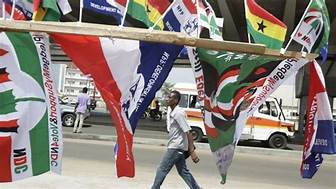Legal, regulatory framework gaps to blame for illicit political funding in Ghana-CDD finding
CDD observed that the more tangible sources of campaign financing were from major campaign financiers, some of whom are engaged in Serious and Organized Crime (SOC) activities.

The Centre for Democratic Development, (CDD) has indicated that the inflow of money from illicit sources in Ghanaian politics should be attributed to the gaps in the legal and regulatory framework and oversight of campaign financing in the country.
Further to the above, the CDD had noted that the high cost of running for elections is exacerbating exclusionary politics and preventing the reforming of the status quo.
In a Press release containing the findings of its study on the topic: “Rising Cost of Politics in Ghana Attracting Illicit Funding from Organized Crime,” the CDD further observed that the more tangible sources of campaign financing were from major campaign financiers -some of whom are engaged in Serious and Organized Crime (SOC) activities.
Additionally, it revealed that the majority of campaign financiers provided their funds with the expectation of receiving some form of reward such as procurement favors in the form of works, services, and construction contracts; appointments; protection of businesses; protection from prosecution in the case of illegal activities; tax waivers; and access to power.
Moreover, the finding mentioned Specific sources of funds identified as money from illicit activities include illegal mining, illegal oil diversion, and kickbacks from procurement of goods, services, and works contracts and from proceeds of organised crime.
Methodology
The study adopted a three-tier approach with a mixture of desk research (literature review) and newspaper content analysis forming tier one. The desk research and analysis sought to provide a basic understanding of the issues of campaign financing in Ghana, identify any patterns and manifestations of the phenomenon, examine the laws and institutions governing political financing in Ghana, discuss the effectiveness of the legal and institutional framework, and understand why challenges persist.
The second tier, which was exploratory, sought to find out the names and demographic data of the financiers of the two major parties in Ghana – the National Democratic Congress (NDC) and the New Patriotic Party (NPP). This phase investigated the two political parties and their campaigns in four out of the 16 administrative regions of Ghana, namely, Greater Accra, Eastern, Ashanti, and Western Regions.
To ensure the accuracy of the data, researchers/investigators living in the four regions were recruited and trained to find out the names and demographic data of the major financiers in the region they had been assigned to.
The second set of researchers/investigators were assigned to one of the four regions they did not reside in to use snowballing methods to identify party insiders and informants who could provide the names and demographic data of the major financiers in the regions they had been assigned to.
The third tier was a final verification check of the names of the financiers. This was done through validation sessions held under Chatham rules on March 19, 2021, in Takoradi, Western Region, and Accra, Greater Accra Region on March 24, 2021.


